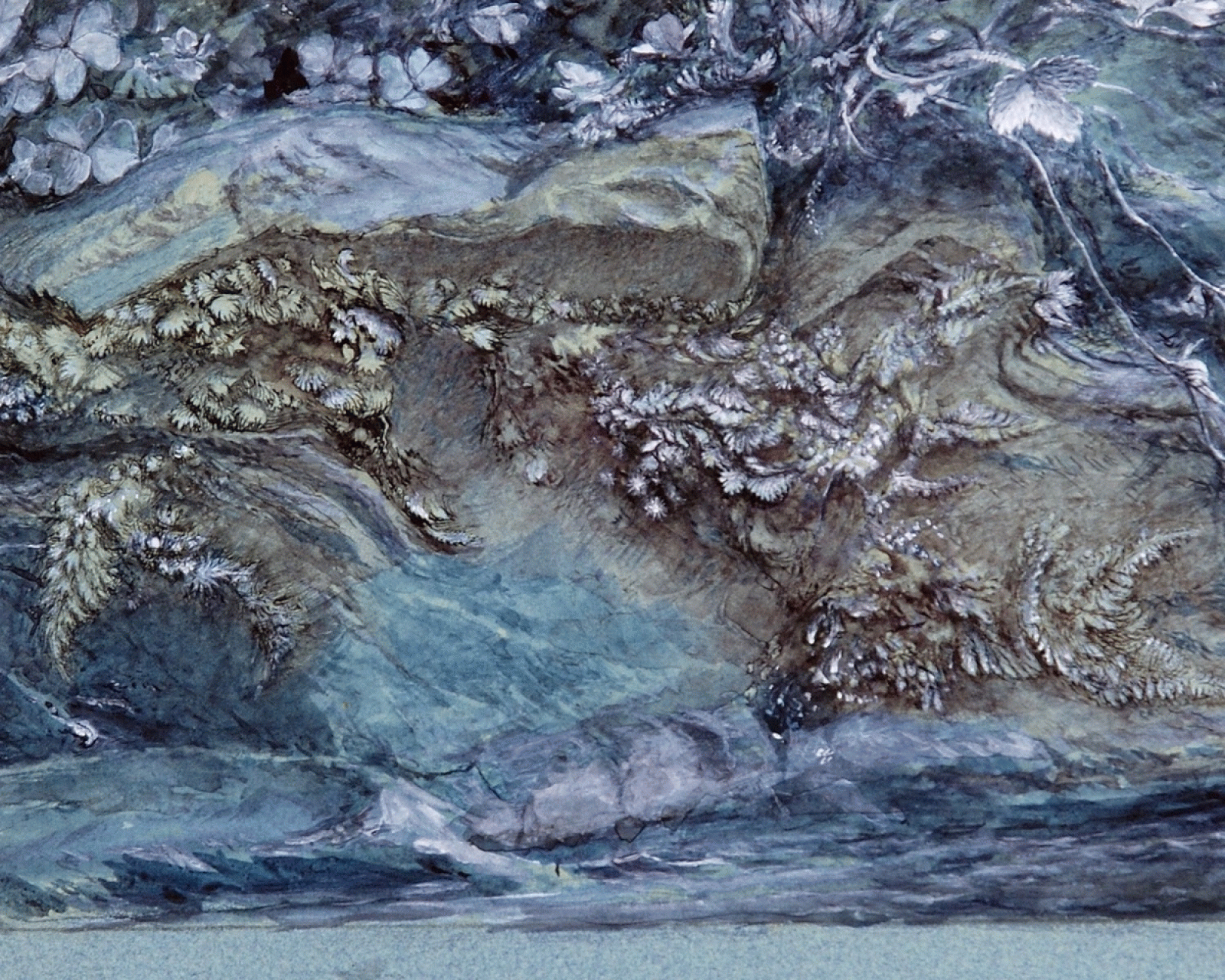4A Lab Seminar
Jenny Nachtigall: Machinic Monism. On Lu Märten's Theory of Vital Form, c. 1910-1930

John Ruskin. Study of Moss, Fern and Wood-Sorrel, upon a Rocky River Bank 1875-79, Pen, ink, watercolour and bodycolour on paper © Collection of the Guild of St George / Museums Sheffield
Wesen und Veränderung der Formen/Künste (Essence and Transformation of the Arts/Forms) (1924) is the title of Lu Märten's (1879-1970) ambitious attempt to rewrite the history of art as a history of vital form, ranging from ancient plant ornaments to the new media of radio and film. Focussed on the work of this largely forgotten feminist art historian and on her idiosyncratic reading of ethnology, (Spinozist) monism, Marx's method and John Ruskin's theory of art, this paper engages with vitalist approaches that conceive of the vegetal and the technological, the organic and the non-organic not as oppositions but as elements in a continuum. What I call Märten's machinic monism thus gestures towards an avowedly a-modern and feminist vitalism of form beyond species thinking and boundary making.
Jenny Nachtigall is a guest professor of art history and theory at Städelschule Frankfurt. Previously Jenny held positions at the Academy of Fine Arts in Munich, University College London and Tate Modern, London a.o. She completed her PhD at UCL (funded by the AHRC and DAAD) and currently works on the resulting monograph Form as Contradiction as well as on a new book project on the afterlives of vitalism in art and theory since 1900. Jenny has written for art-agenda, Artforum, Texte zur Kunst and October magazine (forthcoming). Recent publications include Hybrid Ecologies (2019, diaphanes, ed. with Muhle, Kesting, Witzgall) and Vitalism/ Living Form (2018, in: Franke, Holert, eds. Neolithic Childhood. Art in a False Present, c. 1930).
24. November 2020
Online 4A_Lab Seminar
The event takes place online
Hinweis
Diese Veranstaltung wird durch Fotografien und/oder Videoaufnahmen dokumentiert. Falls es nicht Ihre Zustimmung findet, dass das Kunsthistorische Institut in Florenz Aufnahmen, auf denen Sie erkennbar abgebildet sein könnten, für die Veranstaltungsdokumentation und Öffentlichkeitsarbeit (z.B. Social Media) verwendet, bitten wir um eine entsprechende Rückmeldung.


